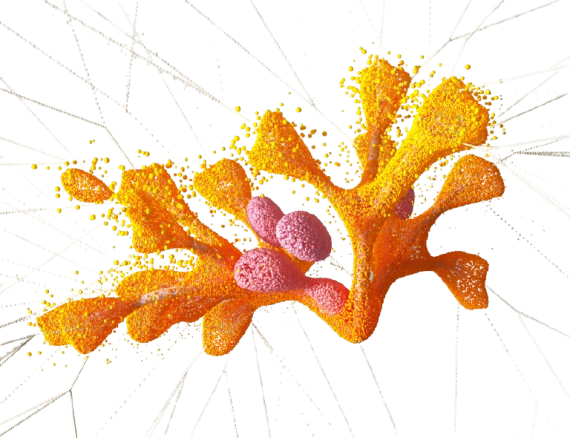Hierarchical Cross-Entropy in mRNA Analysis
The codon structure of mRNA, consisting of nucleotide triplets, directly influences protein synthesis and its biological properties.
RGGR Biotech is at the cutting edge of biomedical discovery, using AI to craft new molecules, predict their properties, and integrate complex biological data for transformative treatments. RGGR Biotech: Pioneering biomedical breakthroughs. Equipping researchers with advanced AI tools for protein synthesis and data-driven insights.

What we do
Explore the cutting-edge technologies and methodologies driving innovation in biomedical research.
Deep generative models are used to generate novel chemical structures with desirable properties, optimizing through both structure and property space simultaneously.
Deep learning models predict molecular properties such as solubility, toxicity, and binding affinity using molecular graphs or fingerprints.
Accelerated virtual screening of large chemical libraries using DNNs to predict potential drug candidates, enhancing protein-ligand docking.
Revolutionized by models like AlphaFold, predicting 3D protein structures directly from amino acid sequences for drug targeting.
Deep learning designs peptides or proteins with specific functional properties, generating new sequences with therapeutic potential.
Models predict interactions between drugs and biological targets, aiding in drug repurposing and novel target discovery.
Incorporating diverse biological data sources using DNNs to understand complex disease mechanisms and identify drug targets.
Simulating adversarial attacks in drug discovery to improve model reliability for real-world applications.
AI-Powered De Novo Protein Discovery
Leveraging AI algorithms to design novel protein sequences with desired functional properties, accelerating the discovery process.
Utilizing AI to predict the 3D structures of designed proteins, ensuring stability and functionality before synthesis.
AI models simulate protein interactions and optimize sequences for enhanced performance in real-world applications.
Dive into our blog to discover state-of-the-art offerings in using AI for drug discovery. Each article provides insights into cutting-edge technologies and methodologies that are transforming the field of biomedical research. Stay informed and inspired with the latest advancements in AI-driven drug discovery.
The codon structure of mRNA, consisting of nucleotide triplets, directly influences protein synthesis and its biological properties.
A new model combining inflammation-derived biomarkers and clinical indicators offers promising predictions for ischemic stroke recovery.
Explore Chai-1, a state-of-the-art model that enhances molecular structure prediction, offering new capabilities and accessibility in drug discovery.
Discover how IFNα-induced BST2+ macrophages contribute to immunosuppression and tumor growth in pancreatic cancer through ERK-CXCL7 signaling.
FAQs
Explore common inquiries from scientists, regulators, and executives about our innovative methods and research at RGGR Biotech.
We leverage advanced AI models to predict molecular properties, optimize drug candidates, and integrate multi-omics data, accelerating the drug discovery process.
Our AI methodologies comply with regulatory standards, ensuring transparency, reproducibility, and validation of AI models in drug development.
We employ rigorous predictive modeling and simulation to assess the safety and efficacy of drug candidates before advancing to clinical trials.
Multi-omics data integration allows us to understand complex disease mechanisms and identify novel drug targets, enhancing the precision of our research.
We partner with leading pharmaceutical companies and research institutions to co-develop innovative solutions and accelerate the translation of AI discoveries into clinical applications.
Our AI-driven offerings have the potential to significantly reduce drug development timelines and costs, leading to faster delivery of effective treatments to patients.